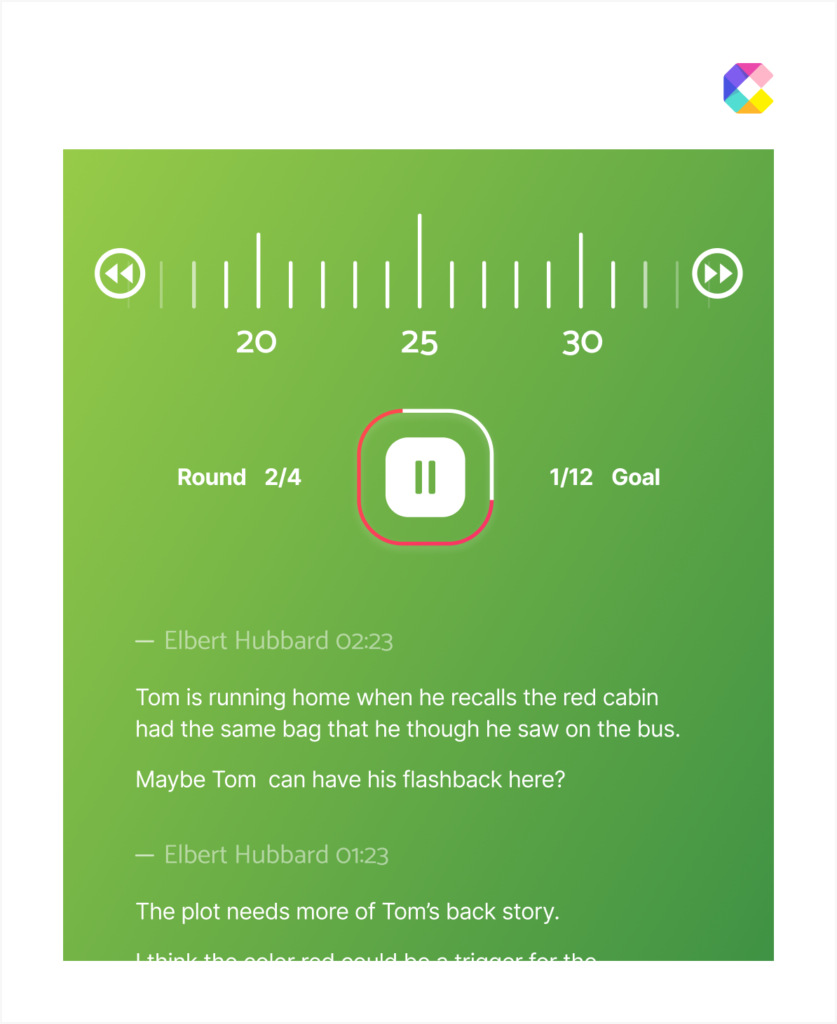This easily overlooked storytelling component can make—or break—your book!
Readers love to feel something when they read. Happiness, sadness, fear, excitement, a sense of danger, and so on. Think about the last book you read. What did that book make you feel? I bet you just recalled a very vivid part of the story, the part that triggered an emotional response in you.
All readers enjoy that moment of surprise, the unexpected, the fear of feeling chased by the bad guy with no real danger, and even rooting for your character (or wishing the villain gets their comeuppance).
As an author, it’s important to try to evoke the correct emotion in your reader and lead them toward that satisfying emotional payoff. Do the lovebirds finally get to enjoy their love? Does the bad guy get caught? Does good or evil win the battle of the beasts? Every scene in a book draws out our emotions, and the very best books balance the difficulties and stresses experienced by characters and brings us to a stunning conclusion that made the pain of the journey worth it.
Emotional payoffs aren’t widely discussed—but without them, a book falls flat.
Any avid reader (who isn’t a writer) tends to describe what books make them feel. This important note reminds authors that they need to put a lot of importance on their story’s emotional payoff. But many writing courses, classes, author interviews and so on don’t discuss this ultra-important topic in depth. That’s what we’re going to discuss today.
So what is an emotional payoff?
Let’s start a bit more basic and work our way up. Every story should speak volumes to the reader and evoke emotions.
In romance novels, you want the reader to watch the love blossom and root for the characters to overcome their hurdles and enjoy a happily ever after.
In thrillers, you watch the ‘bad guy’ acting in an unsettling way and want them to get what they deserve. But along the way, you feel fear for the main character and worry for them.
In fantasy, you want the wonder of magic, the excitement of new worlds, and to learn a whole new existence worlds apart from the one you know while we watch the good guys take the bad guys in a clash for a kingdom.
While these are rough examples, I hope they illustrate the point that every book has stakes. The do or die, try or fly, hero’s journey, or three-act structure that sets readers up to expect what the story is about. When we care about the characters, we become emotionally invested in their journey and this enriches the reading experience.
The term “emotional payoff” tends to be used when discussing the final scene. The happily ever after. The good guys winning. The relief of the bad guy being thrown in jail and the key getting lost.
But there’s so much more to the emotional payoff. Every step of the way, as our hero/heroine struggles, they’re working toward the end. And readers are there every step of the way as a fly on the wall, hoping for their success. So every small victory is an emotional payoff.
The secret to truly powerful writing is to make the readers feel something, then have them celebrate every victory and mourn every backstep, failure, or fall.
How do I ensure a powerful emotional payoff?
Again, help readers be emotionally invested in your characters. Write characters that are a mix of good and evil, that are realistic and imperfect, and make sure the stakes in their stories are high enough to be a challenge.
Let readers watch your characters struggle through no fault of their own—or sometimes their own fault – characters make mistakes too, and making them pay for their mistakes is a valuable way to encourage character growth.
Can I plot or outline emotional payoffs?
Yes! This is a great way to make sure that every step of the way, you’re updating your character’s growth and keeping a balance of emotional struggle and small victories to keep the reader engaged.
Please note that emotional payoff is not synonymous with angst, overly emotional actions, or anything like that. Any book can be engaging without showstopping events that jump the shark or demand emotions.
For example, a scene where someone is tending their sick mother can be just as emotionally—or more—charged as losing a mother. Events don’t have to be extreme to be good, they just need to be well-written, engaging, and keep readers turning pages needing to know what happens next.
Rising action and mini emotional payoffs
While it is true many authors think that the emotional payoff is near or at the end of the book, I refute that theory. I think every time the hero builds up and enjoy some small victory, that’s an emotional payoff. Leaving these mini-emotional payoffs like breadcrumbs leads a reader through the book and makes them more likely to finish the whole story.
I liken it to samples. If someone tries the fresh ingredients you cook with, they’re going to love them individually. But the buildup of the entire meal still exists. Tasting as you go in cooking is similar to readers getting a taste of what’s to come every step of the way while they enjoy trying to guess the ending and hopefully wind up pleasantly surprised by the actual full emotional payoff at the end.
By weaving mini-rewards into the work, every victory and failure becomes much more intense and memorable for the reader. This shows in fantastic literature like Lord of the Rings, where we watch the many small successes—and many failures—and every success brings us readers relief and every setback leaves us worried for the beloved cast of characters.
So yes, to be clear, emotional payoff does typically mean the feeling readers have at the end of the book. However, this powerful tool can be utilized much more than just at the end of the book. Good writing uses a series of micro-reward emotional payoffs to keep readers engaged every step of the way.
When emotional payoffs fail
It’s very important to note, just like when characters are perfect, that an unsatisfying payoff can turn readers against an author’s entire catalogue. As in, if you mess this one up, you risk losing readers for good, even if you only mess up in one book. Readers want characters to work for and earn their victories.
Superman isn’t in danger. There’s no risk to him, really. He’s all powerful and always wins. Yawn.
Likewise, if victory falls in your character’s lap, readers aren’t going to be happy.
One big example of emotional payoffs that really upset readers would be the “it was all a dream” plot device. Readers get fully invested in a story and when they learn that what they were so excited to see wrap up ends with the main character waking up leaves the reader feeling like the whole story was a waste. None of it was real and that emotional payoff is stolen from them.
A similar issue arises when authors feel the need to ‘save’ their character instead of making them face the consequences for their actions, or the true brunt of their situation. Let the character take a few hard hits, fall, stumble, and fail. This makes the victories worth so much more because not only has the character been through so much that the reader needs them to win, but because the victories feel earned rather than given to them, which also negates the struggle.
I just want to tell a story and not bother with this emotional payoff stuff.
And that’s okay! However, when you think back on your all-time favorite books, what draws you to them? While writing can be a hobby or a just for fun activity, if you want to make a career out of it and make money as well as build a readership who love everything you write, you need to consider what draws readers in.
This usually means some kind of emotional draw to the work in question. A good book needs to be a give and take—you give situations that seem impossible to overcome and take your time to solve them. You give readers small emotional payoffs and take their ability to forget your writing.
Good books are often complex, and while writing for fun is a fantastic hobby, writing to market and writing with the thought of reader’s expectations in mind are very important tools in your future success.
Again, if you want to write for yourself, don’t worry about this. If you want to make a living out of writing and build a rabid fanbase that devours every one of your books, you need to get readers emotionally invested in your worlds, your characters, and your storytelling.
Tips to writing powerful emotional moments
What moves you?
As a reader, I mean. When you’re reading a book, make note of the parts that make you feel something. What kind of scene is it? What emotions are you feeling? What combinations of words and imagery bring that feeling out of you?
While it’s important to note that not every scene will work for every reader, if you can isolate what makes you feel something, it’s much easier to construct scenes that move readers too. I’m not in any way saying you should take someone else’s work that makes you feel something, I’m saying that identifying what brings out an emotional response in you is a great way to find ways to add depth to your own writing.
When outlining, include moments that’ll emotionally charge readers. What events take place that carry significant weight to the story? Moments of success where the character wins (or thinks they do) moments of failure, twists, turns, moments that rip out a character’s heart… there are countless opportunities to make sure your writing drags your reader in and makes them feel what your character is feeling.
Remember, readers want to feel the struggle, watch the world fall apart, see how your character fights all odds and comes out on top, changed, and stronger.
The brainstorming tool can help record and generate unique story ideas.
- Capture your ideas with text or audio
- One secure location to store information
- Build on ideas for current and future use




